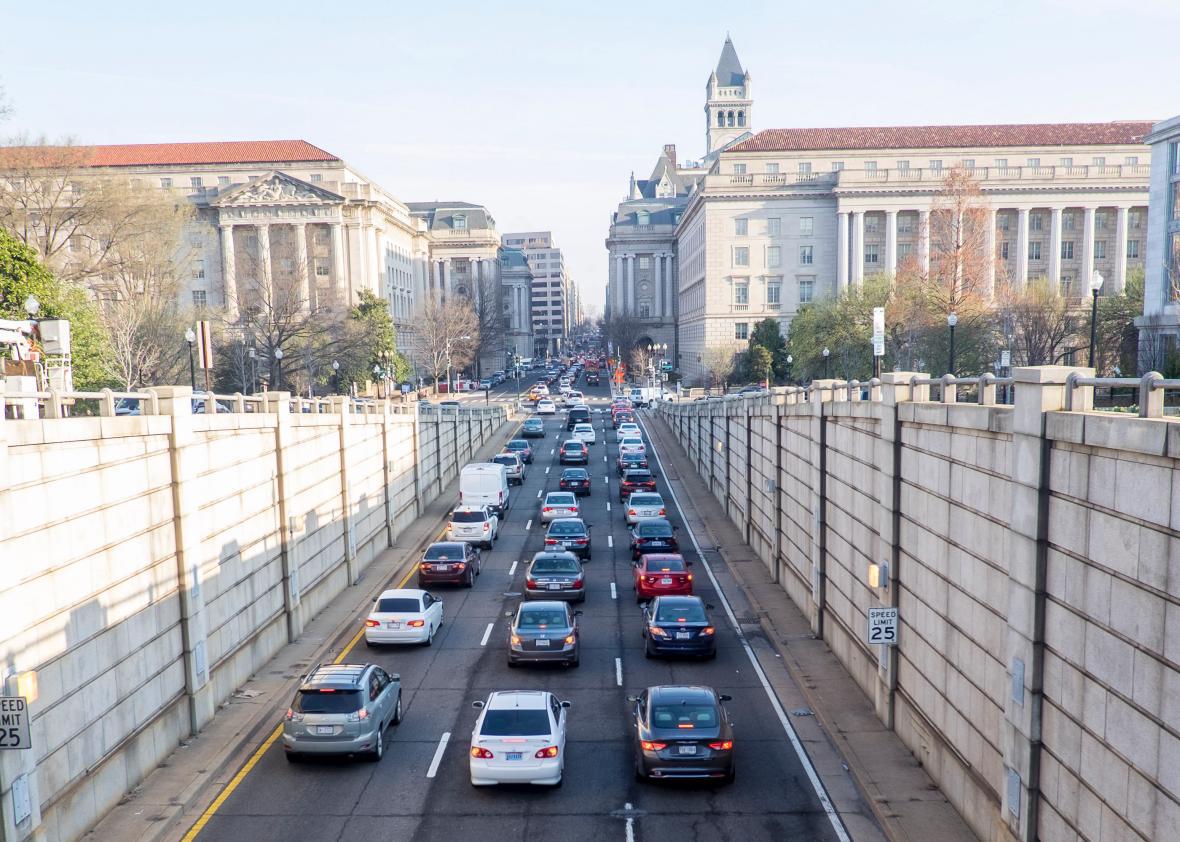We can say this for Washington, D.C.’s ailing Metro system: It brings people together. Not just on the platforms.
Last week, Republican Rep. Mark Meadows, of North Carolina, and Democratic Rep. Gerry Connolly, of Virginia, proposed a bipartisan modification of the IRS code governing transit benefits for federal workers. In light of the service interruptions wrought by WMATA’s ongoing “SafeTrack” repairs program, the pair wants to enable federal workers in the D.C. area to use tax-free transit benefits on transportation network companies like Uber and Lyft, as well as Capital Bikeshare.
Consistent with the current system, which requires commuters to allocate their $255 maximum in benefits to either parking or transit (or dedicate a much smaller sum towards bicycle expenses) but not between them, the bill would create a fourth all-or-nothing category for services that utilize “innovative mobility technologies.” That could lure some frustrated Metro commuters away from mass transit for months at a time. The WMATA has encouraged commuters to try to find other ways to get to work during “Safety Surges.”
The bill would only apply to federal workers receiving transit benefits, and only in the D.C. region. It would expire next summer, or earlier, if WMATA gets the Metro back in shape before then.
“This was introduced purely to try to provide another tool in the management of SafeTrack … It was not designed in any way, shape, or form to hurt Metro,” Connolly told Martine Powers at the Washington Post. “I would not support extending this beyond SafeTrack. I do not want to subsidize non-transit behavior patterns.”
Because parking expenses are tax-deductible, you could say the “subsidizing non-transit behavior” ship sailed 30 years ago. No point in making a fuss about shifting transit subsidies to cars when driving alone to work retains that subsidy.
But what’s interesting about this bill is that it sets ride-hailing startups apart from (and above) traditional taxi and car services. True, Uber and Lyft do both offer very successful carpool services that, as we’ve seen, are starting to approach transit practices in many ways. But this bill doesn’t specify that commuters use carpools.
Rather, its provisions are broad: It would cover any transportation that provides “alternatives to driving alone, including car-share, bike-share, carpool or vanpool, multimodal fare payment system, app-based mobility provider, and other innovative projects.”
The interesting presumption here is that “car-share” is considered superior to calling for a taxi. What matters, to the IRS, isn’t that you’re taking a cab—but that you found it with an “innovative mobility technology.” Sure, commuting to work in a tax-free taxi cab seems decadent. But how is an Uber any different?
